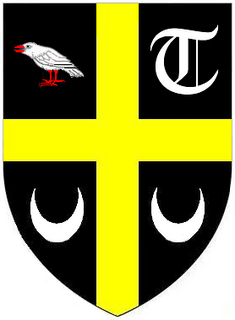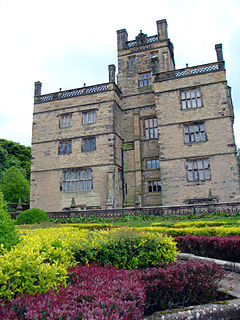Related Research Articles

George Clarke, of All Souls, Oxford, was an English architect, print collector and Tory politician who sat in the English and British House of Commons between 1702 and 1736.

Robert Benson, 1st Baron Bingley,, of Red Hall, near Wakefield, Bramham Hall, Yorkshire and Queen Street, Westminster was an English Tory politician who sat in the English and British House of Commons from 1702 until 1713 when he was raised to the peerage as Baron Bingley and sat in the House of Lords. He served as Chancellor of the Exchequer from 1711 to 1713.

Charles Bertie of Uffington, near Stamford, Lincolnshire was a British politician who sat in the House of Commons from 1711 to 1727.

John Chetwynd, 2nd Viscount Chetwynd was a British diplomat and politician who sat in the House of Commons between 1715 and 1747.

The title of Governor of the Isle of Man existed until 1828. Other titles were also used, especially before 1595.
Thomas Lewis of Soberton, Hampshire, was a British Tory and then Whig politician who sat in the House of Commons between 1708 and 1736.
Sir William Hardres, 4th Baronet of Hardres Court, Upper Hardres, Kent was a British landowner and Tory politician who sat in the House of Commons in two periods between 1711 and 1735.
Thomas Sclater, later Thomas Bacon, was an English lawyer and Tory politician who sat in the House of Commons at various times between 1713 and 1736.
The Dean of Emly was based at The Cathedral Church of St Alibeus, Emly in the former Diocese of Emly within the Church of Ireland. St Alibeus' cathedral was demolished in 1877.
The Mayor of Gloucester is the first citizen of the City of Gloucester, England, and acts as Chair of the Council. The Mayor represents the Council and the City at civic, ceremonial and community events both inside the City boundaries and elsewhere.
Reynolds Calthorpe briefly served as a Member of Parliament in the House of Commons of Great Britain from 1713 to 1714.

Philip Rashleigh (1689–1736) of Menabilly, near Fowey, Cornwall, was a British landowner and politician who sat in the House of Commons from 1710 to 1722.

The Chaplain to the Speaker of the House of Commons, also known as the Speaker's Chaplain, is a Church of England minister who officiates at services held at the Palace of Westminster and its associated chapel, St Mary Undercroft. The Chaplain also acts as chaplain to the Speaker and Members of Parliament. The first Speaker's Chaplain was appointed in 1660. The current officeholder is Patricia Hillas.
Edward Hopkins, of Coventry, was an English Whig politician who sat in the English and British House of Commons between 1701 and 1727 and in the Parliament of Ireland from 1721 to 1727. He held a number of government posts in Ireland.

Richard Shuttleworth of Gawthorpe Hall, Lancashire and Forcett Hall, Yorkshire was an English Tory politician who sat in the English and British House of Commons for 44 years from 1705 to 1749. He was considered Whimsical as he occasionally failed to support his party.

Richard Lockwood of Dews Hall, near Maldon, Essex was a British merchant and politician who sat in the House of Commons between 1713 and 1741.
Sir Thomas Taylor, 1st Baronet was an Anglo-Irish politician.
Kenrick Edisbury (1670?-1736), of Deptford, Kent and Gresford, Denbighshire, was an English Member of Parliament.
References
- ↑ JONES, Richard (bef.1679-1736), of Ramsbury, Wilts. The History of Parliament. Retrieved 7 February 2019.